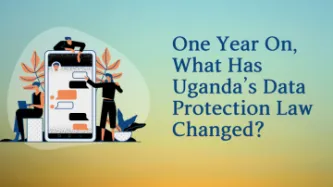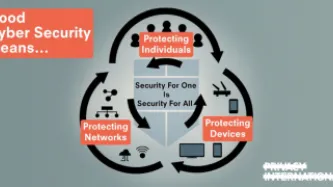Advanced Search
Content Type: Advocacy
In May 2024, we made a submission for the forthcoming report of the UN Special Rapporteur on the right to education to the General Assembly in October 2024.
Amongst others we recommend the UN Special Rapporteur for this upcoming report to:
Underline the need for a human rights-based approach to all AI systems in the education sector and describe the necessary measures to achieve it.
Reassert that any interference with the right to privacy and the advancement of the right to education due to…
Content Type: Video
The case dealt with a Russian law obliging telecommunications service providers to indiscriminately retain content and communications data for certain time periods, as well as a 2017 disclosure order by the Russian Federal Security Service requiring Telegram Messenger company to disclose technical information which would facilitate “the decoding of communications”.Links:PI case pageECtHR judgment in the Podchasov casePI's work on encryptionPI's report on End-to-End Encryption (E2EE)More…
Content Type: Advocacy
Privacy International welcomes the aim of the Cyber Resilience Act to bolster cybersecurity rules to ensure more secure hardware and software products. Nevertheless, we note that the proposal put forward by the European Commission contains certain shortcomings which could both hamper innovation and harm consumers who are increasingly relying on digital products and services.It is essential these shortcomings, detailed below, are effectively addressed by the EU co-legislators through the…
Content Type: News & Analysis
Unwanted Witness’ research into Safeboda highlighted the company’s failure to comply with some of the law's core data protection principles, with a number of implications for the exercise of data subject rights. The enforcement action against Safeboda by National Information Technology Authority, Uganda (NITA-U) requires the company to make fundamental changes to how they handle people's personal data in order to comply with the Data Protection and Privacy Act, 2019.
This first landmark…
Content Type: News & Analysis
Privacy International (PI) welcomes today's report from the UK Information Commissioner's Office (ICO) into three credit reference agencies (CRAs) which also operate as data brokers for direct marketing purposes. As a result, the ICO has ordered the credit reference agency Experian to make fundamental changes to how it handles people's personal data within its offline direct marketing services.
It is a long overdue enforcement action against Experian.…
Content Type: News & Analysis
In September 2019, PI published the report Your Mental Health for Sale. Our investigation looked into popular mental health websites and their data sharing practices.
Our findings suggest that, at the time of the research, most websites we looked at were using third party tracking for advertising purposes, sometimes relying on programmatic advertising technologies such as Real Time Bidding (RTB), sharing personal data with potentially thousands of actors. Some websites were also found sharing…
Content Type: News & Analysis
This piece was originally published by Unwanted Witness here.
Today marks exactly one year since Uganda passed its data protection law, becoming the first East African country to recognize privacy as a fundamental human right, as enshrined in Art 27 of the 1995 Uganda Constitution as well as in regional and International laws.
The Data Protection and Privacy Act, 2019 aims to protect individuals and their personal data by regulating processing of personal information by state and non-state…
Content Type: Long Read
This piece was written by Aayush Rathi and Ambika Tandon, who are policy officers at the Centre for Internet and Society (CIS) in India. The piece was originally published on the website Economic Policy Weekly India here.
In order to bring out certain conceptual and procedural problems with health monitoring in the Indian context, this article posits health monitoring as surveillance and not merely as a “data problem.” Casting a critical feminist lens, the historicity of surveillance practices…
Content Type: Long Read
The pressing need to fix our cybersecurity (mis)understandings
Despite all the efforts made so far by different, cybersecurity remains a disputed concept. Some states are still approving cybersecurity laws as an excuse to increase their surveillance powers. Despite cybersecurity and cybercrime being different concepts, the confusion between them and the broad application of criminal statutes is still leading to the criminalise legitimate behaviour.
All of this represents a sizable challenge…
Content Type: Long Read
In December 2018, Privacy international exposed the dubious practices of some of the most popular apps in the world.Out of the 36 apps we tested, we found that 61% automatically transfer data to Facebook the moment a user opens the app. This happens whether the user has a Facebook account or not, and whether they are logged into Facebook or not. We also found that some of those apps routinely send Facebook incredibly detailed and sometimes sensitive personal data. Again, it didn’t matter if…
Content Type: Impact Case Study
What HappenedOn 5 June 2013, The Guardian published the first in a series of documents disclosed by Edward Snowden, a whistleblower who had worked with the NSA. The documents revealed wide-ranging mass surveillance programs conducted by the USA’s National Security Agency (NSA) and the UK’s Government Communications Headquarters (GCHQ), which capture the communications and data of hundreds of millions of people around the world. In addition to revealing the mass surveillance programs of the NSA…
Content Type: Impact Case Study
What is the problem
Business models of lots of companies is based on data exploitation. Big Tech companies such Google, Amazon, Facebook; data brokers; online services; apps and many others collect, use and share huge amounts of data about us, frequently without our explicit consent of knowledge. Using implicit attributes of low-cost devices, their ‘free’ services or apps and other sources, they create unmatched tracking and targeting capabilities which are being used against us.
Why it is…
Content Type: Impact Case Study
What happenedStrong and effective data protection law is a necessary safeguard against industry and governments' quest to exploit our data. A once-in-a-generation moment arose to reform the global standard on data protection law when the European Union decided to create a new legal regime. PI had to fight to ensure it wasn't a moment where governments and industry would collude to reduce protections.In January 2012, the European Commission published a proposal to comprehensively reform the…












